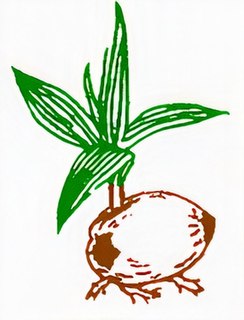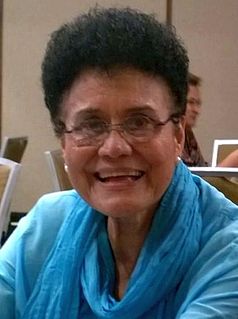Related Research Articles

The politics of Fiji take place within the framework of a parliamentary representative democratic republic. Fiji has a multiparty system with the Prime Minister of Fiji as head of government. The executive power is exercised by the government. Legislative power is vested in both the government and the Parliament of Fiji. The judiciary is mostly independent of the executive and the legislature.

The Fiji Labour Party (FLP), also known as Fiji Labour, is a political party in Fiji. Most of its support is from the Indo-Fijian community, although it is officially multiracial and its first leader was an indigenous Fijian, Dr. Timoci Bavadra. The party has been elected to power twice, with Timoci Bavadra and Mahendra Chaudhry becoming prime minister in 1987 and 1999 respectively. On both occasions, the resulting government was rapidly overthrown by a coup.

The United Fiji Party was a political party in Fiji. It was founded in 2001 by Prime Minister Laisenia Qarase as a power base; it absorbed most of the Christian Democratic Alliance and other conservative groups, and its endorsement by the Great Council of Chiefs (Bose Levu Vakaturaga) caused it to be widely seen as the successor to the Alliance Party, the former ruling party that had dominated Fijian politics from the 1960s to the 1980s. It drew its support mainly from indigenous Fijiians.
Tupeni Lebaivalu Baba is a Fijian academic and politician, who founded the now-defunct New Labour Unity Party. Most members of this party later merged with several other centrist parties to form the Fiji Democratic Party. A former Professor of Education at the University of the South Pacific (USP), he later served as a senior research fellow at the Centre for Pacific Studies at the University of Auckland in New Zealand, from 2001 to the end of 2005. In the general election scheduled for 6–13 May 2006, Baba attempted a political comeback, this time on the ticket of the ruling Soqosoqo Duavata ni Lewenivanua (SDL), a political switch that generated a considerable degree of public discussion. Although his bid was unsuccessful, he was subsequently appointed to the Senate as one of nine nominees of the Fijian government.

The National Federation Party is a Fijian political party founded by A.D. Patel in November 1968, as a merger of the Federation Party and the National Democratic Party. Though it claimed to represent all Fiji Islanders, it was supported, in practice, almost exclusively by Indo-Fijians whose ancestors had come to Fiji, mostly as indentured labourers, between 1879 and 1916. However, in the 2018 General elections the party recorded a considerable change in its support base as a consequent of the inclusion of more indigenous Fijian candidates.

The Conservative Alliance was a right-wing political party in Fiji, and a member of the ruling coalition government. It was commonly known as the CAMV, a combination of the initials of its English and Fijian names. At its annual general meeting on 17 February 2006, the party voted to dissolve itself and merge with its coalition partner, the Soqosoqo Duavata ni Lewenivanua (SDL). The President of the party at the time of its dissolution was Ratu Tanoa Cakobau, a Bauan chief, while Ratu Josefa Dimuri served as General Secretary. For legal reasons, Parliamentary members of the disbanded party maintained a separate caucus in the House of Representatives, under the leadership of Ratu Naiqama Lalabalavu, until the end of the parliamentary term, on 27 March 2006.
Filipe Nagera Bole CBE, CF was a Fijian politician who hailed from the village of Mualevu on the island of Vanua Balavu in the Lau Group. He had a reputation as one of Fiji's few politicians untainted by scandal, and was noted for his moderate views. In October 2003, he endorsed calls for an end to racially segregated voting, saying that electing all members of the House of Representatives by universal suffrage would make voters and politicians think of the common national good, rather than communal interests.

The National Alliance Party of Fiji (NAPF) was a Fijian political party. It was formally registered on 18 January 2005 by Ratu Epeli Ganilau, as the claimed successor to the defunct Alliance Party, which ruled Fiji from 1967 to 1987 under the leadership of the late Ratu Sir Kamisese Mara, Ganilau's father-in-law. Others involved with the party included university lecturer Meli Waqa as party secretary, and Manu Korovulavula as treasurer. The Deputy Leader was Hirdesh Sharma. The party was launched publicly at a mass rally in Suva on 8 April 2005.

The Soqosoqo ni Vakavulewa ni Taukei (SVT), occasionally known in English as Fijian Political Party, was a party which dominated politics in the 1990s and was the mainstay of coalition governments from 1992 to 1999.
Kenneth Vincent Zinck is a Fijian politician, who served in the Cabinet from 2001 to 2006 as Minister for Labour, Industrial Relations, and Productivity.

Communal constituencies were the most durable feature of the Fijian electoral system. In communal constituencies, electors enrolled as ethnic Fijians, Indo-Fijians, Rotuman Islanders, or General electors vote for a candidate of their own respective ethnic groups, in constituencies that have been reserved by ethnicity. Other methods of choosing parliamentarians came and went, but this feature was a constant until their final abolition in the 2013 Constitution.

The Constitution of Fiji requires general elections for the House of Representatives to be held at least once every five years. The last election before Fiji's 2014 election was held on 6–13 May 2006. Acting President Ratu Joni Madraiwiwi issued a proclamation on 2 March, effective from 27 March, dissolving Parliament. The previous parliamentary term had been due to expire on 1 October 2006.

Local elections in Fiji are held for two cities and ten towns. Each city or town has a council comprising between 8 and 20 members, elected for three-year terms, although the government announced legislation on 15 February 2006 to extend the term to four years. Each city or town council elects from among its own members a Mayor for one year. Consecutive terms are permitted.
Pita Kewa Nacuva is a Fijian politician, who served as Speaker of the House of Representatives from June to December 2006, when a military coup deposed the government and resulted in the dissolution of Parliament. Previously, he had served in the Cabinet as Minister for Tourism.
Isireli Leweniqila is a former Fijian politician, who served in the Cabinet as Minister for Information and Communications.
Josateki Vula is a former Fijian politician, who served in the House of Representatives from 2001 to 2006. He represented the Bua Fijian Communal Constituency, which he won for the Conservative Alliance (CAMV) in the parliamentary election of September 2001, defeating the incumbent, Mitieli Bulanauca of the Soqosoqo Duavata ni Lewenivanua Party (SDL).
Emasi Qovu is a former Fijian politician, served in the House of Representatives from 2001 to 2006. Whilst in Parliament he was appointed Government Whip in 2005–2006.

Adi Mere Tuisalalo Samisoni is a Fijian businesswoman and politician, from Lomaloma village on the island of Vanua Balavu in Fiji's Lau archipelago. Samisoni is current Member of Parliament for the Opposition Party SODELPA. She holds a Doctorate and master's degree in Business Administration and owns Hot Bread Kitchen and resides in Suva Fiji's Capital. She has served as Mayor of Lami and as a member of the now-defunct House of Representatives.
Ponipate Tawase Lesavua was a Fijian politician, who led the now-defunct Party of National Unity, which drew most of its support from Ba Province in the West of the country. The former Police officer, who spent 20 years in the Criminal Investigation Department, was an outspoken politician, who championed what he saw as the interests of western Fiji. He has endorsed calls for a return to the former system of customary justice, in force during the colonial era, under which convicted offenders would be returned to their villages not only for punishment but also for counselling and correction, according to the Fiji Times.
Josaia Waqabaca is a Fijian public figure and former political organizer, who turned police informant about the Fiji coup of 2000. Waqabaca was convicted and imprisoned in 2001 for plotting to kidnap the Military Commander, Commodore Frank Bainimarama, in 2000.
References
- ↑ "Politician passes away". fijitimes.com. 25 October 2012. Archived from the original on 25 October 2012. Retrieved 25 October 2012.
- ↑ "Ragigia attends first session". Fiji Times. 14 November 2006. Archived from the original on 13 September 2012.